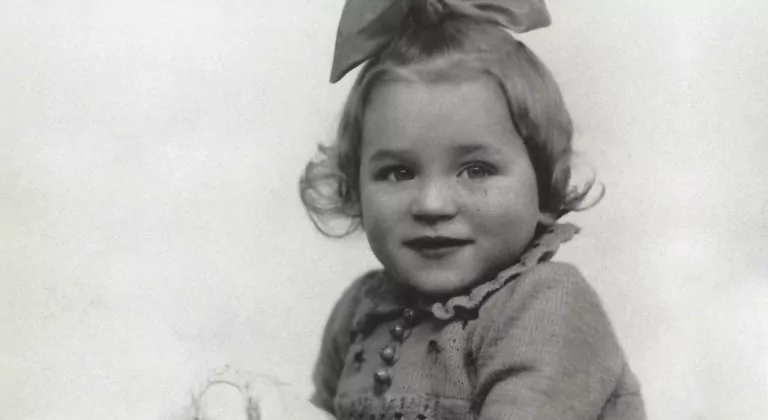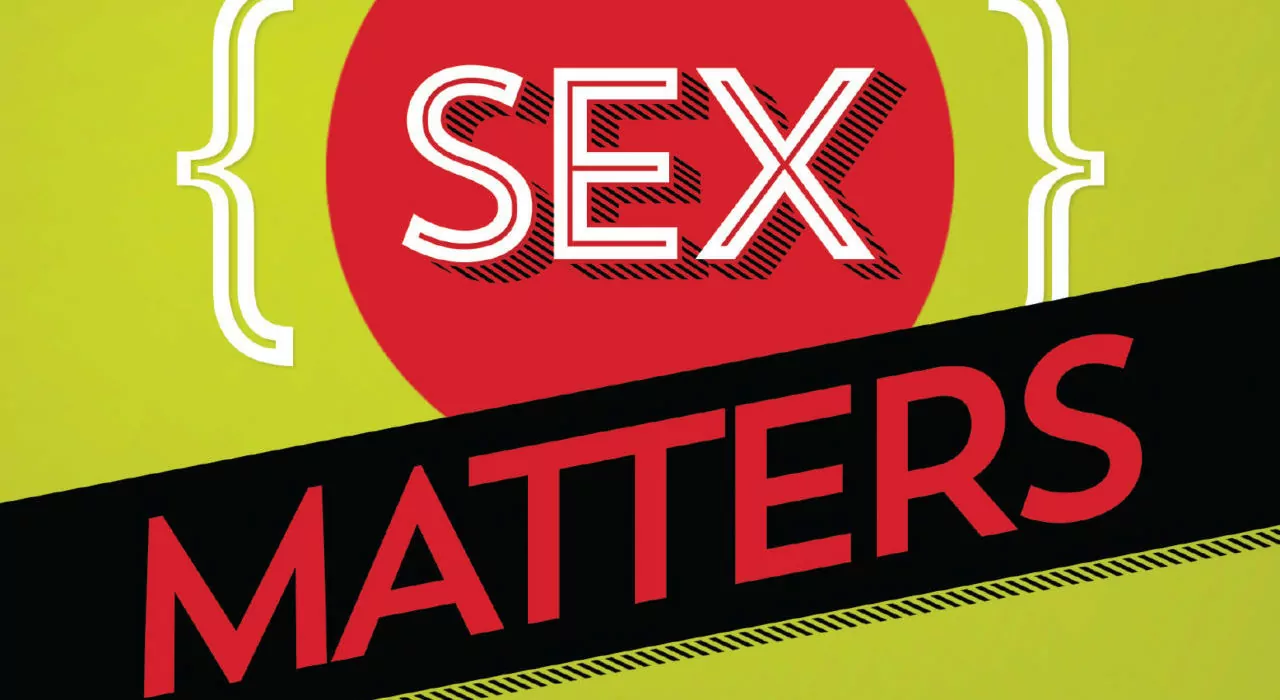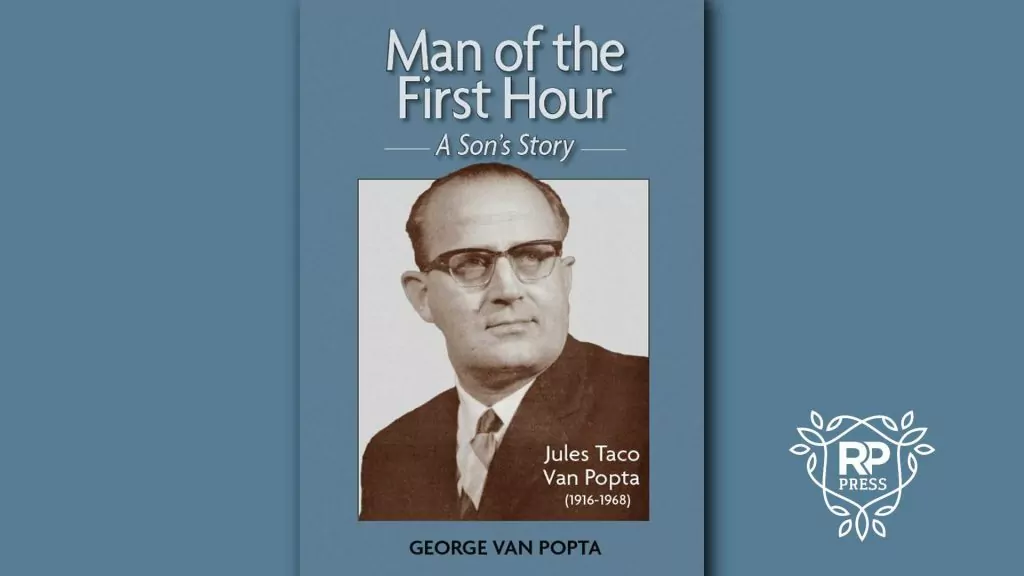“The horror and sacrifices of those who endured a war must be recorded and remembered. If we fail to do so, we will soon take peace for granted and exaggerate small inconveniences.” – Jan Hendrik Luiten
A CHILD OF WAR
My birth must have been a moment of mixed emotions for my parents. To be sure, I have every reason to believe that they were delighted with the arrival of their first-born child. However, my birth took place just three months after the German army had invaded the Netherlands. I was not born in a country where we could speak freely or go outside without worry. No, I was born in a country that was tightly controlled by an enemy. Fears and secrets were a normal part of my life. I was born a child of war.
Yet, the horror of war was not unbearable for me. I endured it with acceptance and resilience. This remarkable ability to take things in stride had two reasons. First of all, I did not know what it meant to live in peace. I was not able to compare my current situation to better days. War was all I knew. But the second reason was more significant. At all times I felt supported by people who cared for me. My mother absorbed my fears when she took me in her arms. The members of our extended family provided emotional support and practical help. And, last but not least, I was comforted by the prayers that were spoken at meals, at church, and at times of great concern about loved ones.
It is to honour my parents and family members that I feel compelled to share my story. I understand now that their practical helpfulness and their natural loyalty were expressions of their love for God. By their actions they unwittingly taught me that the Lord can always be trusted, and that He always hears our prayers. Even when the enemy is constantly harassing us.
THE WAR COMES HOME
My memories of the war would not have been so vivid if my parents would not have provided a hiding place for a Jewish couple. But they did, and soon the Germans suspected it. Without delay they placed our house under surveillance. I was completely unaware of the hiding place. But the stress of being watched by the Germans without knowing the reason for their suspicion had a deep impact on me. Mind you, my parents did not seek the danger. Their defiance of the Germans happened as a natural outflow of their faith in the Lord and their love for the neighbour.
Our family belonged to the Reformed church in Enschede. Their minister was a man whose faith showed itself in his works. He had taken it upon himself to obstruct the plan of the Nazis to eradicate the Jews. Not only did he preach this conviction from the pulpit, but he also practiced it. With relentless determination he collected the names of the Jews who were short-listed for transportation to the death-camps. He then carefully selected members in his congregation who would be suitable to hide these Jews. It is telling of my parents that they were among those whom he selected for this onerous task.
Of course, I was too young to know what was going on. But even if I had been old enough, my parents would not have discussed this matter until I was asleep in my bed. I can imagine that my father was immediately convinced that this was a task that the Lord placed on his path. My mother probably thought so too, but my father’s conviction allowed her to voice the objections. Where do we hide them? We cannot risk putting Alice’s life in danger! And we have no idea how long this war will last! What if the Germans find out? Then we will all die! What if the Jews get sick? And how do we keep it a secret?
But soon all the concerns faded to background. My parents were already making plans. A hiding place could be constructed upstairs. The cupboard in the spare bedroom could be enlarged toward the back. Soon the construction started, with the help of my father’s brothers. The back of the original cupboard was replaced with a door that could be locked from the side of the room under construction. Attention was paid to details. The newly created space was decorated with brown-yellow wallpaper. I remember that wallpaper distinctly because after the war my sister and I used to play with our dolls in that room. But of course I do not remember anything of the construction. Neither was I aware of the fact that my parents had opened their home to Alfred and Reina Hen, whom they soon affectionately referred to as “our Jews.”
And so it happened that my parents, Jan Hendrik Luiten and Geertruida Klos, became personally involved in the Second World War.
NOISES AND WHISPERS
I have no early childhood memories of a carefree summer evening, or of a cheerful family gathering. No. My first memories consist of unpleasant noises. I could clearly hear them in my bedroom when my uncles and aunt visited my parents. It sounded as if they were all talking at the same time, at the top of their voices. Through the closed door of my room I could feel the tension. Something was wrong. My uncles were very agitated. They were discussing the war. They always talked about the war. I got the impression that the situation was getting worse. The voices of my aunts sounded very worried. Once in a while I could clearly hear them sigh. All the voices together sounded restless. It was oppressive. I wished my mother would come to my room.
The daytime had bad noises too. There was one sound in particular that scared me. It was quite different from the secretive talking of my family. This sound came from outside. It started as a rhythmic rumble in the distance. As it came closer I could sense its vibration in the air. Then the group of marching German soldiers appeared in full view. Proudly they paraded through our street, loudly stamping their boots to the beat of a song. The sound of the song was aggressive. I vividly remember the words “Ach wehr fahren, ach wehr fahren gegenüber England,” “We will make war, for sure, we will make war with England.” It made me feel terrible. I felt the fear in my stomach.
But the most alarming noise may well have been the roar of the fighter planes. I could already hear their faint drone when they were still far away. Slowly the faint drone turned into a deafening rumble, right above our heads. Then it faded away again, like a ripple. It left me wide awake and worried. At the time I did not even understand that these planes were bombers on their way to a target.
To my surprise I noticed that the sound of the family gatherings at our house was changing. The uncles and aunts still visited us. We needed each other. But they started to whisper, afraid to be heard. To me their muffled voices were much more unsettling than their loud noises had been. It was clear that my family needed to be very cautious. They were on guard, constantly. No-one else was allowed to hear what they were talking about. Someone could be listening in! A German soldier, or a traitor. It was very unsettling. I tried to be brave. But it was not easy.
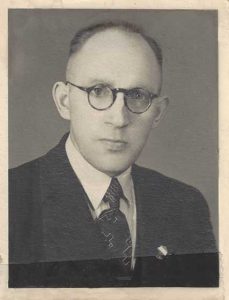
Alice’s father, Jan Luiten
WITHOUT MY FATHER
Little did I know that my family had good reasons to be on guard. Not only did we hide two Jews, but my father had made the decision to join the Resistance. Both were serious infractions of the German rule of law. Both were punishable by death.
After my father joined the Resistance he did not come home anymore. Often we did not even know where he was. This was very difficult for us. We felt lost and lonely without him. Thankfully our extended family continued to look after us. My grandfather supplied us with bread from his bakery. Another relative, who owned a branch of the well-known grocery chain “Spar,” always made sure that we had a sufficient supply of groceries in the house. My mother’s younger brother and his wife, who were childless, visited us often. Together our relatives were a source of light in these dark days.
Not surprisingly, the Germans noticed that my father stopped coming home. His absence seemed convincing proof to them that we were hiding Jews. As a result our family was placed on an even higher level of suspicion. At any time of the day a group of Germans would come to our house, banging on the door with great force and shouting, “Wo Sind die Juden?” “Where are the Jews?” But, however thoroughly they searched our house, they did not find Jews. In no uncertain terms they questioned my mother about my father. Boldly she would enter into an argument with them, explaining that they had no reason to be suspicious. With brave determination she dodged their questions about my father, calmly stating that she expected him home in the next day or so.
My mother would always take extra time for bringing me to bed on days that the Germans had searched our house. “Where is Papa?,” I would ask her. She could not say. But she prayed with me, and sang songs. Her soothing voice helped me to feel safe again.
It was during these dark days that my sister Hinke was born. One morning it was not my mother who called me out of bed, but Tante Aaltje, my aunt. I was very surprised. I was even more surprised when I noticed that my mother did not come to the breakfast table. She was staying in bed. That was not like her at all. But, thankfully, Tante Aaltje took charge of the things my mom usually did. She was also the one who told me that I had received a sister. I did not know what to think. Where did the sister come from? Where would she sleep? Tante Aaltje suggested that I should see the baby. But I was not sure. Everything felt unreal and scary. Soon I realized that things had changed. My mom and I were not together anymore. We were joined by a little person who needed care around the clock. It was sad that we could not tell my father about our baby sister, because we did not know where he was. Would things ever become normal again?
I kept asking about my father. And I always received the same answer. We did not know where he was, or when he would come back. We were not even sure if he was still alive. Over time this uncertainty became our new normal. We accepted the pain of not-knowing and forced ourselves to carry on. For my mother this new normal included looking after the Jews upstairs.
Then we received the devastating news that my father had been caught by the Germans. He had been transported to a concentration camp in Germany. I did not fully know what that meant. But I did understand that his situation had become dreadful. And that he might die.
I felt lost. I wanted to cry. Everybody seemed numb. The silence did not feel right. But at that moment there were no words. Only sighs. And silent prayers.
THE WORST OF TIMES
The news that my father had been caught changed the way I looked at things. I gave up hoping that he might come home soon. I started to imagine how we would live without him. I was sure that my mom would manage well. The evidence was clear. She kept looking after her regular commitments. She took care of my sister. She kept our house tidy and clean. And she prepared the meals with the groceries that our family provided. At the time I did not understand how lonely she must have been.
One day I noticed that my mother took a tray with food upstairs. I was confused. Maybe she brought it to her bedroom for a late-night snack. But I could not figure out exactly where she took it. I sensed that it was not any of my business to ask about it. But boldly I asked her anyway.
“Mom, where are you going with the food?”
Without blinking an eye my Mom answered,
“I am looking after a sick dog.”
That was exciting! It had never occurred to me that the secret would be a surprise for me! My imagination soared. Soon my mom would take a healthy dog downstairs, and I would have a playmate. I would take the dog for walks. I could look after feeding him. And maybe he could sleep in bed with me.
At the first opportunity I shared the exciting news with my friend next door. The friend hastened to tell her mother.
At that point the situation took an unexpected turn. My friend’s mother rushed over to our house. She talked to my mom in a hushed, but agitated voice. Only after the war I was told what transpired in the conversation. The neighbour lady explained to my mom that soon the whole neighbourhood would know that she was bringing food upstairs for a sick dog. But they would very likely understand that we did not have a sick dog upstairs. And not all the neighbours could be trusted. My mother should be careful not to draw any attention to our house. We were already under suspicion!
But I think that the Germans had made up their mind already at that point. Their suspicion that there were Jews in our house was all but proven. They were dead-set on finding them. One day we heard the loud singing and stamping of marching soldiers in our street. It stopped at our house. We were holding our breath. But soon all doubt was removed. After a loud knock a large number of German soldiers barged inside. Suddenly the house was filled with dark-grey uniforms and Wehrmacht army caps. My mother placed her arms securely around me. The soldiers searched for a long time, especially upstairs. But again, their search was unsuccessful. Venting their anger they grabbed my mom by the throat and kicked her into the hallway closet. Then a soldier looked at me, picked me up and threw me into the cupboard too. Another soldier started to kick me viciously. I felt the blows of his heavy boots on the lower part of my back. It was hurting badly. Their kicks damaged my spine. For life.
The incident in the closet changed me. It destroyed my hope that things would get back to normal. I lost my childlike optimism. The Germans would undoubtedly come back to our house. My father was gone. Dead maybe. My back hurt. I was concerned for my little sister. I was confused by the secrets. But I felt safe with my mom. And I loved it when the relatives came. Thankfully my family had an inner resilience. They had a faith that passed understanding. I felt that.
NO MORE WAR
A while later I noticed that the conversations of the relatives were changing again, slowly but surely. But this time it felt like a good change. Their voices became less hushed and more cheerful. Excited even. Other things changed as well. The German soldiers were not marching through the streets of Enschede anymore. Their bragging songs had stopped. Then the exuberance broke loose. The war was over!
It took a while for me to understand what it meant to live without fear for the enemy. The marching Germans had disappeared. There were no strange secrets anymore. But there were surprises.
One day my mother called me to the kitchen. Two people were sitting at the table. A man and a woman. I had never seen them before. My mother told me that these people were Jews. They had lived upstairs in a secret room. My eyes must have been wide with surprise and my mouth probably fell open. The Germans were right then. We had been hiding Jews. Our Jewish guests turned out to be good company. It was very nice to have them in our house.
Not much later the relatives began to discuss the Dutch Resistance workers in the German concentration camps. Supposedly many of them had started to walk home from the camps. That was very good news! Filled with new hope I asked my mother when my father would be coming home. To my disappointment she told me that we could not be sure that he was coming back. He could have died. In the camp. Or on the way home. That worried me. But I remained hopeful.
My hope started to soar when my mother told me a few days later that trains had been arranged to bring the liberated prisoners home. A train was scheduled to arrive at the Enschede railway station once a day. Names of passengers could not be provided. Although there was no certainty that my father would be on one of the trains, this was very good news.
On the day that the first train was to arrive we got up early. It would take us about an hour to walk from our home on the outskirts of Enschede to the railway station in the centre of town. And we surely did not want to be late. We left the house in high spirits. My sister sat up in the stroller which my mother pushed with joyful determination. And I walked, hopped and skipped the whole way. As we came closer to the railway station we met several other excited people. This would be a day of happy reunion. It could be. We knew that not everyone would come back. But we wanted to be hopeful.
We arrived at the train station plenty on time. The wait was long. But finally we could see the train in the far distance. It came closer and closer till it screeched to a halt. The doors opened. Strange-looking men came out. Their eyes were hollow and their bodies had points sticking out at the shoulders, the hips, and the knees. All the women looked closely to see if they recognized these strange men. Soon shouts of joy filled the air. But my mom was not showing any excitement. However hard she looked, she was not able to pick out my dad. Slowly it started to dawn on us. He was not on the train. The way home seemed very long. My mother was crying.
But the next day we went again, in good cheer. We were convinced that this would be day that my father would have made it on the train. If he was alive. But again he was not there. On the way home I looked at my mother. She was crying.
And so it went, for what seemed an endless number of days. Every morning again we left hopeful; and every afternoon we came home sad. Then the trains stopped coming. My mother was informed that the transportation of liberated prisoners to Enschede was completed.
I decided not to believe any rumours anymore. The devastation of false hope was more hurtful than the nagging pain of hopelessness. I tried to stop thinking about my father.
Life continued. I helped my mom and I spent time with my friends. One day I was playing in our backyard with some of the neighbour girls. Suddenly we heard happy shouts and laughter coming from our house. My mother appeared in the door opening and started calling my name. I ran over to her, curious to hear what was going on. “Alice! Sweet girl! Dad has come home!” What? Really? I could hardly believe it. Overjoyed I rushed inside. I ran into the kitchen. There was a man sitting at the table. I stopped in my tracks. Was that my father?
He talked to me.
“Hi Alice,” he said. “I am so glad to see you again. Mom was right. You have grown into a beautiful girl.”
Gently he reached down to hug me, but I drew back. This man could not be my father. He did not look one bit like the wedding picture that we had treasured so dearly during his absence. And he stank terribly. I was scared. I looked up at my mom, and ran away. My mom did not call me back. At the end of the day she asked me if I would kiss my father goodnight. But I couldn’t.
The next morning “our Jews” joined our family for coffee. We had a nice time with each other. It was clear that Mr. Hen and the man who said he was my father knew each other well. My supposed father used Mr. Hen’s nickname, “Frans,” rather than his formal name “Alfred.” It made me think. I was still not sure that this strange man was my father, but I was starting to consider the possibility.
Mr. Hen must have been watching me. Turning towards me, he said,
“Alice, do you trust me?”
I had to think about that for a minute. Then I nodded.
“Very well,” he continued, “Would you believe me if I said that this strange man is your father?”
After a pause, I nodded again.
Mr. Hen had one last question.
“Would you give your father a little kiss to show him how happy you are that he came back?”
I decided to stand up. Slowly I walked over to my Dad. He smiled at me.
Then I did it. I gave him a little kiss. It was scary. And it was good.
I was only five years old when I reconnected with my father. But the connection lasted till death parted us. And his memories are alive in my heart.
From this moment on “our Jews” became our honourary relatives: Uncle Frans and Aunt Reina.
It took time before my Dad was ready to share his story with us. He never told us the whole truth. He was not able to. He left out the most painful, most disturbing parts. He did not want to relive them, and he wanted to spare us the extent of his misery. And no one prodded him.
He did, however, share the story of his liberation from the concentration camp. The Resistance workers in the concentration camp were never officially informed that the Germans had surrendered. But when the rumours of the German capitulation were eventually confirmed, the prisoners started to escape in small groups. My father and two other captives decided to undertake the journey home together. It was not an easy trip. Much of their physical strength had been lost due to the hard labour, mistreatment and malnutrition during their camp years. But they were helped along the way by German farmers. They discovered that many Germans had hated the war. These people were grateful for the opportunity to provide hospitality to the survivors of the camps.
After several weeks my father and his two friends arrived at the border-crossing between Germany and the Netherlands, not far from Enschede. It was a very emotional moment. Soon they would embrace their loved ones again. They did not know what had happened to them in their absence. Maybe not all of them would have survived the war. But they trusted that the Lord, who had stood by them in their dark hours, would also have cared for their loved ones.
In that confidence the three men traveled their final miles back to their families.
THE WAR REMEMBERED
The war may have been over, but its horror continued in my soul. Throughout my childhood I relived the fear that I felt when the roaring fighter planes dropped their bombs on our town. For many years I had nightmares about the sight and sound of these low-flying bombers. In these dreams I vividly heard the rumbling roar of bombs that fell on homes and stores, reducing them to ruins. I would wake up in a sweat and run to my mother’s bedroom. She comforted me with tight hugs and soothing words. I did not know at the time that these bombings were accidental droppings by American planes that missed their targets in Germany.
After the war our family stayed in close contact with Uncle Frans and Aunt Reina. They found a place to live not far from our home. This provided us with the opportunity to visit each other regularly. Together the families reminisced about the hiding years. I was impressed to hear that Uncle Frans had kept himself busy with reading as well as writing. Together with other Jews who survived the war they decided to rebuild the synagogue in Enschede. When the restoration was completed they invited my parents for a tour. To their joy my parents accepted the invitation. Soon I was old enough to help Aunt Reina with small housekeeping chores. There was always something to do, the more so after the birth of their son. On Saturdays I had a special task. They did not do any work on that day of the week as it was set aside as the Sabbath. They could not even switch on a light. However, they did not object if I performed this task for them. Aunt Reina then treated me to a piece of delicious cake which she had baked the day before. Eventually the three of them emigrated to Toronto, where Uncle Frans started a successful tailor business. But their immigration did not prevent us from staying in touch with each other.
My Dad needed to regain his strength. But in due time he, my mother and our dear relatives were all convinced that he was ready to return to work. Without delay he contacted the textile factory where he worked before he was taken prisoner. It was a great joy for him to hear that his previous position was available! I am sure that it made his transition from captive Resistance worker in a concentration camp to fulltime employee much easier. The fact that I passed his place of work every day on my way to and from school made it even more wonderful. What a big difference for me, from fearing that you might never see your father again, to walking by his workplace twice a day. I was very happy.
A number of years later my brother Andre was born. We were very excited, and exceedingly thankful for our abundant blessings: health, family, friends, food, employment, and now a baby brother who was born in a time of peace.
Several years later our family of five emigrated to Carman, a small town in Manitoba. Our correspondence with Uncle Frans and Aunt Reina gained a new dimension. We could understand their situation much better having experienced an emigration ourselves. My mother sealed the mutual friendship when she traveled by plane to Toronto. She was a brave, loyal woman. And my father was proud of her.
****
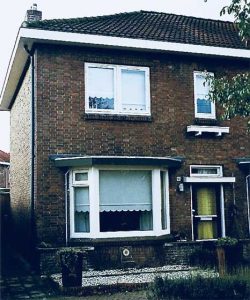
The house today: Alfred and Reina Hen hid in the attic
Several decades later it was me who made a historic trip, together with my husband Bert. We had decided to pay a visit to the country of our birth. One place we were sure to visit was Enschede. I was eager to show him the place where I was born.
It was not difficult for me to find the old family home. “Bert, here it is,” I said. As I was saying these words, the present merged with the past. This was the place where I was born. In this house the Jews were hidden. Here it was where I had suffered the fear of separation from my father. Here it was that I endured the house-searches by the Germans. Here it was that I was kicked into the hallway cupboard by German soldiers.
As I was sharing these stories with my husband, the front door opened. A woman stepped outside.
“Are you looking for someone?” she asked.
“No, this is the place where I was born,” I answered spontaneously.
Immediately the woman opened the door wide and invited us in. But I was hesitant. Would it be appropriate to accept her invitation? Would I not impose on her privacy?
But Bert put a bit of pressure on me. He would not want me to have regrets later, and he was curious to see the house.
I felt a bit tense as we walked through the front door. Tentatively I looked around. The house was not as big as I remembered. But I recognized the hallway, the door to the living room, the kitchen.
We went upstairs. The lady explained that her husband was working on some renovations. With anticipation I turned my head to the place where I expected the entrance to the hiding place. But all I saw was a wall with holes and loose boards on the floor. The husband was taking the hiding place out, board by board. Then, with a shock, I noticed that the brown-yellow wallpaper was still covering the walls.
“This is the hiding place,” I uttered. “Our Jews lived here.”
“Really?” the lady called out. “Please tell me more about your parents, and about the people that lived here in hiding.”
****
Throughout my life I have often reflected on the war in the Netherlands. At the time I saw it through the eyes of a child. I feared the marching Germans. I was worried about my father. But I found comfort and safety in the arms of my mother. Now I have reached the age of the strong. Over the years I have learned to see the magnitude of the Second World War. Entire nations lived in fear. Many Jewish families were killed. Healthy young men died a horrible death, on both sides of the war. And wars continue to be waged. Yet, I have also learned to trust the Lord. We do not have to fear. He is our shield and our tower, our comfort in life and in death.
This first appeared in the Nov/Dec 2018 issue.







